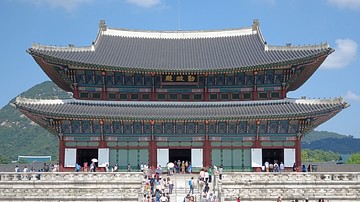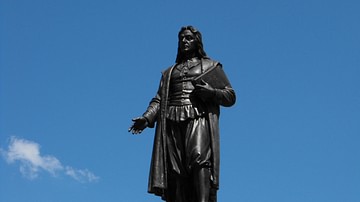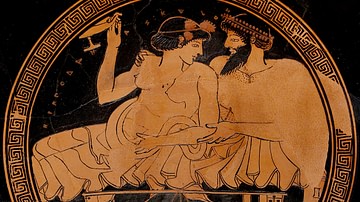Search Definitions
Browse Content (p. 110)

Definition
Early Joseon Period
The Early Joseon Period (1392 - c. 1550 CE) in Korea was bookended by internal power struggles but witnessed major scientific and societal advances and prosperity. The Joseon (Choson) Dynasty ruled Korea from 1392 CE to 1897 CE, and scholars...

Definition
Providence Colony
Providence Colony (also known as Providence Plantation, modern-day Providence, Rhode Island, USA) was a settlement established in 1636 CE by the Puritan separatist theologian and pastor Roger Williams (l. 1603-1683 CE) after he was banished...

Definition
Druid
Druids were a class of individuals in ancient Celtic cultures known for their great wisdom and knowledge of traditions. Not only priests who managed all religious rituals such as sacrifices (including humans), druids were able to give practical...

Definition
Lugh
Lugh (also Lug, Luga) was one of the most important Celtic gods, particularly in Ireland, and he represented the sun and light. Although originating as an all-wise and all-seeing deity, Lugh was later thought of as a historical figure, great...

Definition
Helen of Troy
Helen of Troy (sometimes called Helen of Sparta) is a figure from Greek mythology whose elopement with (or abduction by) the Trojan prince Paris sparked off the Trojan War. Helen was the wife of Menelaus, the king of Sparta, and considered...

Definition
Roger Williams
Roger Williams (l. 1603-1683 CE) was a Puritan separatist minister best known for his conflict with both the Plymouth Colony and Massachusetts Bay Colony in 1633-1635 CE, resulting in his banishment and founding of the colony of Providence...

Definition
Kukulcan - The Feathered-Serpent God of Mesoamerica
Kukulcan (pron. Koo-kool-kan) is the name of a feathered serpent god in the mythology and religion of Mesoamerica, in particular, the Yucatec Maya. He is also identified as the feathered serpent god Quetzalcóatl by the Toltecs and Aztecs...

Definition
Stilicho
Flavius Stilicho (365-408 CE) was a Roman army commander, who rose in the ranks under the reign of Roman emperor Theodosius I (r. 378-395 CE) and eventually became the regent to his son Honorius (r. 395-423 CE). Stilicho fought with distinction...

Definition
Hetaira
A hetaira (pl. hetairai) was an educated female prostitute in ancient Greece and a common participant in symposia or drinking parties in private homes. Sometimes referred to in English as a courtesan, the Greek term hetaira was a euphemism...

Definition
James V of Scotland
James V of Scotland ruled as king from 1513 to 1542. He succeeded his father James IV of Scotland (r. 1488-1513), one of the country's most popular Stuart kings, but as he was still a child, the early part of his reign was tempestuous with...